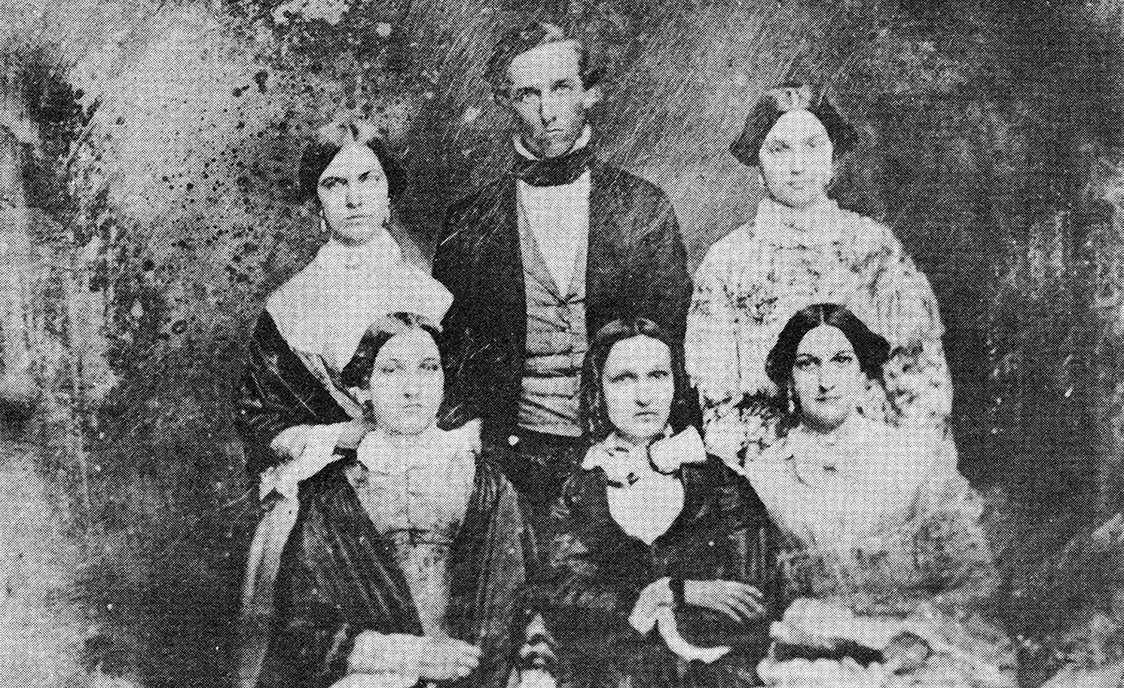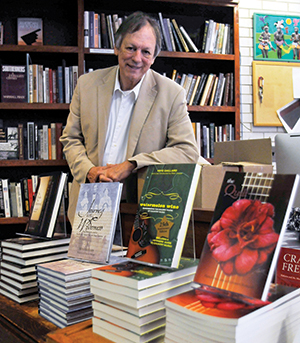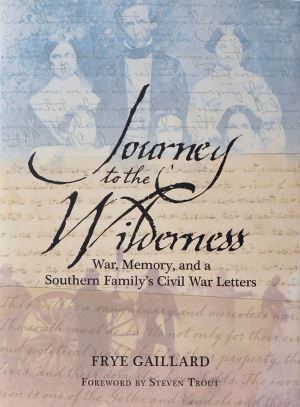
By Allison Griffin
The American Civil War, one of the darkest periods in our country’s history, is for most of us relegated to history books and Hollywood films, which often break it down into political, racial or economic terms.
But a new book, released to coincide with the 150th anniversary of the end of the war, frames the conflict through a very human lens, based on letters written by those who lived with its very tragic consequences.
Author Frye Gaillard of Mobile, like many Southerners, grew up with the notion that the Civil War was a sort of glorious lost cause — “we, being the South, might have lost, but we fought so valiantly.”

Gaillard is a student of the history of the South who’s also written several books about its past, its culture and its music. But Gaillard also has a unique perspective on the Civil War: He had a grandfather who lived to be 103, and whose mind was lucid till the very end. That man, Samuel Palmer Gaillard, was born in 1856, so he very literally remembered the Civil War.
Samuel Gaillard was an Alabama lawyer and a natural storyteller, and he found an appreciative audience in his young grandson. He recalled the war in a very painful way — his father, his uncles and a cousin were all killed in the war.
Frye Gaillard grew up with these stories and was always intrigued with that part of our history, but his adulthood was soon overshadowed by yet another painful period. He became a journalist and spent many years covering the intense years of the civil rights movement.
Yet his grandfather’s stories were always with him. A few years ago, he started thinking about how some of his relatives had saved the letters written by family members during the Civil War — some of whom were fighting, and some who were home awaiting news from the front.
He gathered as many of the letters as he could, these verbal snapshots of a long-ago time, and found that they were in some ways more in line with his grandfather’s memories than with some of the books he’d read.
“Even though they did refer to the heroism and honor of Confederate troops, they also were filled with a sense of loss and a sense of tragedy,” he says.
 A new life for old letters
A new life for old letters
The letters became the basis for the new book, Journey to the Wilderness (NewSouth Books, $23.95), which helps reveal, through the words of those who lived it, the pain and very real sense of despair that settled over the South during the Civil War.
Gaillard relied on the work of professional historians to provide the context for this book, which is more in the realm of a memoir than a history textbook. He and his grandfather were close, and the war touched Samuel Gaillard personally. The letters made it easy to humanize the story; in fact, the process of going through the letters was somewhat painful.
“It didn’t seem like it was very long ago, when you have these words from those days right in front of you,” he says. “And having known somebody personally who, even though he was a child, literally remembered that period of time, made it more real and more personal too.”
The title has a double meaning — “wilderness” as a metaphor for the wilderness of war, but also as a nod to his ancestor, Franklin Gaillard, who was the family’s most prolific letter writer and who was killed at the Battle of the Wilderness in May 1864. Wilderness was a particularly gruesome battle; the woods caught fire, and many of the wounded soldiers were burned alive.
“I think that, in a way, we owe these ancestors a realistic compassion for what they went through,” Gaillard says.
Beyond all of the political issues of the war, slavery chief among them, the story is really one of tragedy for both sides, and should be remembered that way, Gaillard says.
“I think we owe it to the people who lived in those times to recognize the pain and the tragedy that they were forced to contend with.”
Author, teacher … and songwriter collaborator
Frye Gaillard, writer-in-residence at the University of South Alabama and author of several books about Southern culture and history, has also branched out into contemporary music.
He’s not a singer, but he’s teamed up with some talented Southern singer-songwriters to pen lyrics to their music. Gaillard says he’s always been intrigued by what he calls the literature of the songwriter, looking at song lyrics as poetry.
His partnerships have included singer-songwriters Anne E. DeChant of Nashville; Davis Raines, a former prison guard and Alabama native; Kathryn Scheldt, a Fairhope native; and Pamela Jackson, a native of Auburn who is also now in Nashville.
The songs are often partly or mostly complete by the time Gaillard gets involved, so he may contribute a verse or two. But that’s OK. “It’s a chance to get out and use song lyrics to look at things that matter to people,” he says. “And it’s fun.”
He’s toured recently with all of those artists — doing readings, playing music and telling stories — usually playing to small venues in intimate settings. “People wind up with these programs, listening to music in a slightly different way, maybe a little more attentively, to what it’s really saying,” he says. “It’s fun to see that, because their enjoyment of the songs seems to go deeper.”




